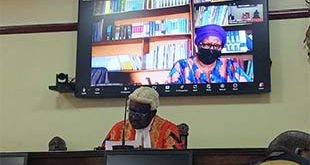
A new study by the American organization Pew Research Center on educational attainment among the world’s major religious groups finds a large gap between Muslims and Christians in sub-Saharan Africa. This gap has persisted for decades, and for more insight into possible reasons, Caryle Murphy interviewed Melina Platas, an assistant professor of political science at New York University Abu Dhabi. Platas’ research centers on variations in economic and political development in developing countries; since 2005, she has focused on sub-Saharan Africa.
How do you think the history of Islam and Christianity in sub-Saharan Africa may have had an impact on education for Muslims and Christians?
The distribution of Christian missionary schools, many of which formed the basis of the education sector in independent Africa, had a profound and long-term effect on educational attainment. Missionary schools were often sparse in predominantly Muslim areas for political and geographic reasons. In many cases, Muslims had already established their own Islamic education systems, and sometimes political systems as well. In these areas, colonial authorities often limited educational investments, especially by Christians, either to avoid conflict or because of perceived low demand for Western-style education. These patterns of educational investment during the colonial period led, I believe, to the emergence of the education gap between Muslims and Christians.
One of the report’s key findings is that a large gap still persists. In sub-Saharan Africa, Christians average six years of formal schooling, compared with fewer than three years for Muslims. What do you regard as the best explanation for this?
The best explanations must take into account the tremendous variation in the Christian-Muslim education gap that exists across the region, and even within individual African countries. In Nigeria, for instance, the gap in years of education is several years, while in Rwanda, Muslims have more schooling than Christians, on average. This variation, combined with the high education levels among Muslims in some other regions of the world, suggests we can rule out the explanation that there is something inherent to Islam that produces this gap.
We see a fairly consistent pattern: Muslim educational attainment in sub-Saharan Africa tends to be higher where Muslims are a local minority, and lower where they are a local majority. It is likely that low educational investments in Muslim-majority areas during the colonial period played an important role in initially producing the gap.
But why has the gap remained, and, in some places, grown, despite the end of colonialism and nearly ubiquitous free primary education? In the case of Malawi, I have found that in Muslim-majority areas, access to school is relatively lower and rates of poverty among Muslims relatively higher, both of which may explain persistently lower educational attainment. Further, Muslim parents in these areas, with low or no education themselves, may be less able to help their children succeed in school, and less able to advocate for educational resources for their communities.
Do you think that this Muslim-Christian education gap has had anything to do with the appearance in Nigeria of the extremist group Boko Haram, which is hostile to Western-style education? Is this hostility a widespread view among Muslims in other sub-Saharan African countries?
Nigeria’s stunningly large Christian-Muslim education gap, did not, I believe, cause the emergence of Boko Haram. Rather, this gap reflects the political history that has made the country particularly susceptible to conflict. Nigeria is a large and populous country with long-standing economic and social inequality, heavy reliance on natural resource revenue and high levels of corruption.
I have seen no evidence that hostility toward Western-style education is a widespread view among Muslims in sub-Saharan Africa. Survey evidence suggests that most Muslim children in Africa today start primary school, which is inconsistent with the idea that Muslim families oppose this kind of education altogether. Further, in my own interviews across Uganda, Nigeria, Ghana and Malawi, more often than not, both Muslim parents and Muslim leaders have reported much higher educational aspirations than their children are currently achieving. The question we need to answer is why these aspirations are not met.
In sub-Saharan Africa, the Muslim gender gap in education has remained largely unchanged, and had even widened slightly over recent generations. This is different from other parts of the world, where Muslim women often are making greater gains than Muslim men in education. Why do you think this is so?
Sub-Saharan Africa is the poorest region globally and the relatively unchanged Muslim education gender gap is probably due, at least in part, to conditions of poverty, including few opportunities in formal employment, relatively early marriage, few resources to support numerous children and low-quality schools. Muslims in many parts of Africa are not only less educated, but also poorer than Christians, and certainly poorer than Muslims living in regions where women have made great gains in education, such as the Gulf Cooperation Council countries.
The difference you highlight, however, demonstrates that it is not the case that Muslim women are universally disadvantaged, relative to Muslim men, with respect to education, a popular misconception.
****
editor@independent.co.ug
 The Independent Uganda: You get the Truth we Pay the Price
The Independent Uganda: You get the Truth we Pay the Price


